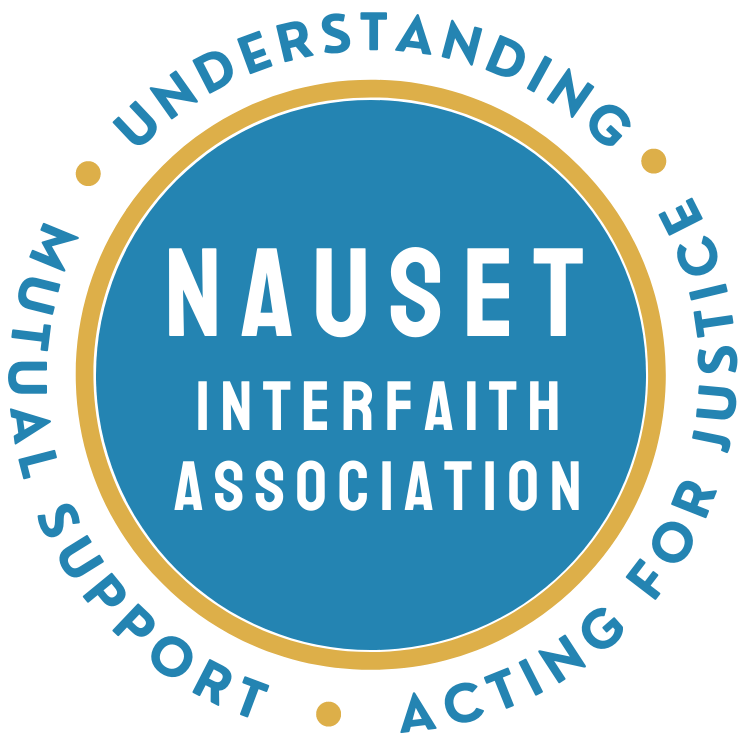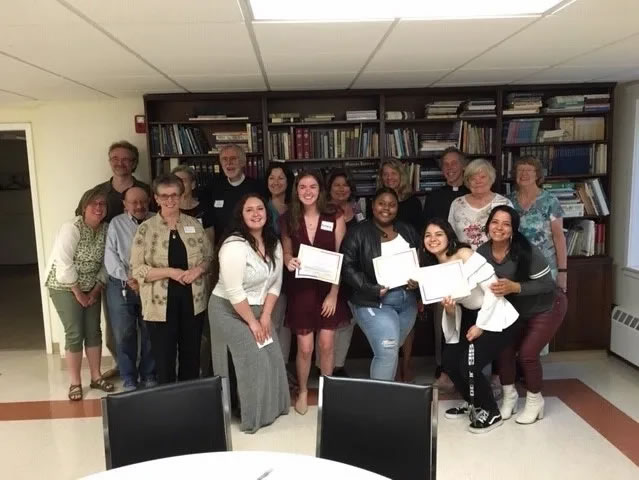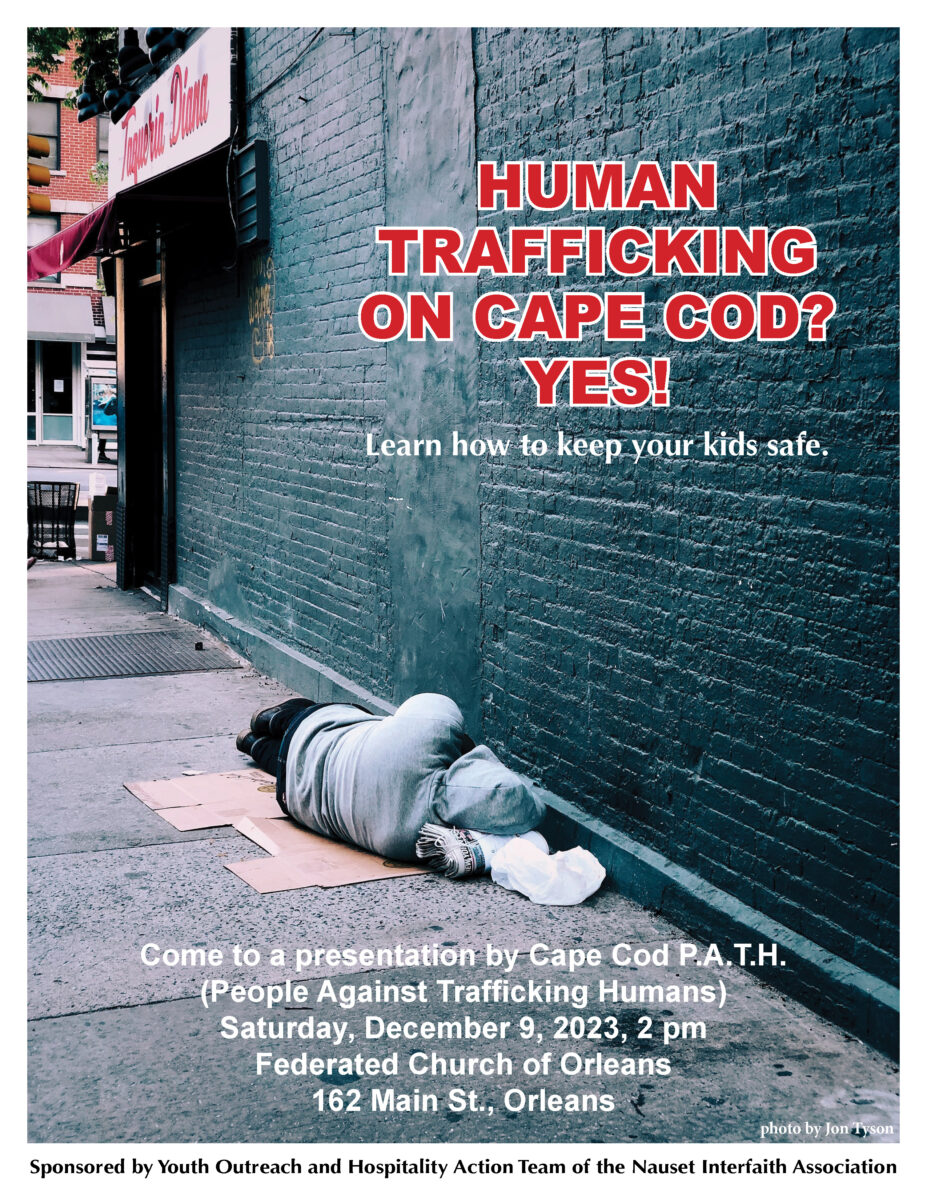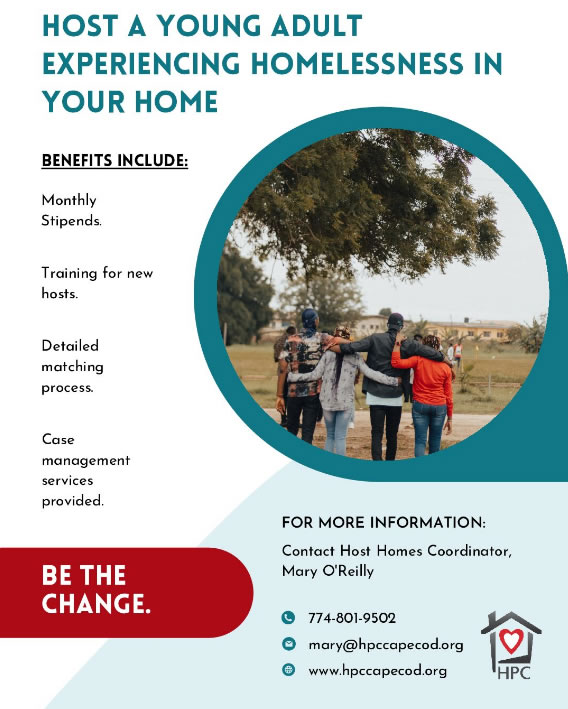Youth Outreach
Mission Statement
As an action team of the Nauset Interfaith Association, we seek to support Cape Cod youth who are or are at risk of becoming homeless or who otherwise experience exclusion from the community. Our goal is to help these young people experience safety, respect and dignity and the opportunity to make their own choices as contributing members of the community to which they belong.
Vision Statement
We envision a time in which no young person experiences homelessness or rejection and every young person has the freedom and support in which to thrive.
A Very Brief History
Youth Overnights of Hospitality (YOH) was created in 2015 by members of NIA and others who were interested in providing shelter for youth experiencing homelessness, especially youth from the LGBTQ community on the Lower and Outer Cape. When we found that we were unable to provide shelter, we changed the name to Youth Outreach and Hospitality (YOH).
What We Do
Through our counselor, teacher, and nurse contacts from the three Lower Cape High Schools and a Case Manager at Homeless Prevention Council, we make ourselves available to all our regional high school students and other youth and young adults (YYA) on the Lower Cape in urgent need of a safe place to stay the night, funds for rent, car repairs or food.
Each year we have shown a film or brought in a speaker to raise consciousness around the fact that LGBTQ youth and youth of color are disproportionately represented in the homeless population and how this might be addressed and prevented.
According to the Barnstable County Community Needs Assessment in 2019, “as many as 2,400 YYA [youth and young adults] may experience some form of homelessness over the course of a year…they find themselves without a stable place to live because home isn’t safe, isn’t supportive, or doesn’t exist.” (p.5) One of the top priorities that emerged for 2022-2023 was to create a Youth Action Board (YAB) as the representative voice for YYA with lived experience of homelessness. The Youth Action Board was launched in 2022.
A recent report by the Trevor Project found that 28% percent of LGBTQ+ youth have experienced homelessness or housing instability at some point in their lives. The study, titled “Homelessness and Housing Instability Among LGBTQ Youth” found that those who did encounter housing issues had two to four times the adds of reporting depression, anxiety, self-harm, considering suicide complared to those with stable housing. Among the group’s key findings, nealy half (44%) of native/indigenous LGBTQ+ youth eperienced homlessness or housing instability at some point in their life. This is compared to 16% of Asian-American/Pacific islander LGBTQ+ youth, 27% of White LGBTQ+ youth, 27% of Latinx LGBTQ+ youth, 26% of Black/LGBTQ+ youth and 36% of multiracial LGBTQ+ youth.
Sixteen percent of LGBTQ+ youth reported that they had slept away from their parents of guardians because they ran away from home. 55% of them reported running away due to mistreatment or fear of mistreatment because of theri LGBTQ+ identity. Another 14% of LGBTQ+ youth had slept away from parents or guardians because they were kicked out or abandonded, according to the Treveor Project’s report. Forty percent reported being kicked out or abandoned due to their LGBTQ+ identity.
YOH has also created a fund that enables us to award a scholarship to one student graduating from each of the three Lower Cape High Schools. Scholarships are awarded to encourage and support students who have been homeless, at risk, or have overcome significant adversity. Students are nominated on the basis of need and motivation to pursue further education. Our goals are to continue to support these students financially with awards each semester they remain in school for up to four years of their college education or vocational training. In order to deepen our relationship with scholarship students, YOH members keep in touch with them and see them in person whenever possible.
If you are moved to make a donation to support YOH, please send a check with YOH on the memo line, made out to:
Nauset Interfaith Association
c/o Rev. Ken Campbell
PO Box 306
South Orleans, MA 02662
OR you can DONATE ONLINE
Thank you.
Contact
Brooke Eaton-Skea, Chair
articles, Programs & Events
Here’s the link to a recent article on youth homelessness on the Cape from the Provincetown Independent: For Cape Cod’s Homeless Youth, Resources Are Few – The Provincetown Independent
FIRST FUNDRAISER FOR THE YOUTH ACTION BOARD
Here’s an article from The Antiracism Daily (ARD) by Andrew Lee:
By Andrew Lee (he/him)
Each year, over half a million children and college-aged adults are unhoused for at least a week in the United States. LGBTQ+, pregnant, parenting, and Black and Indigenous youth are more likely to be unhoused, as are young people who have been involved in the criminal injustice or child welfare systems (National Alliance to End Homelessness). Many turn to substance use and are several times more likely to be sexually assaulted than their peers with housing. One-third have had sex in exchange for food, shelter, or drugs. The leading cause of death for unhoused youth is suicide (NN4Y).
Aside from the lasting effects of poverty, addiction, and trauma, unhoused youth face additional structural barriers that follow them into adulthood. Requirements for legal guardianship, residency, and attendance all work to systematically force unhoused youth out of the school system. Finding, applying for, and being selected for a job without stable housing is already incredibly difficult and is worsened without a high school diploma. The young people pushed out of the education system are then pushed out of the job market as adults (NN4Y).
Too many “solutions” from government and nonprofit institutions further marginalize unhoused young people by framing them as problems to surveil, discipline, and reform. As young people and unhoused people, they are already doubly marginalized, with many also LGBTQ+, disabled, and/or BIPOC. There’s also the inherent power differential between someone seeking assistance and the social worker or service provider deciding whether or not to provide it—often someone who has never been unhoused themselves. The result is a “service system of unequal provider-client relationships in which their dignity and identity are often devalued” (The Lancet).
The solution to youth homelessness is right in the name of the problem. To fix youth homelessness, young people need homes. As a nationwide coalition of community, faith-based, and public organizations identifies, if we wish to eradicate youth homelessness, “government and communities should offer more housing to unaccompanied youth” (NN4Y).
Youth homelessness is frequently ignored. When it’s mentioned, political and corporate leaders frame it as an unfortunate problem they’re trying to fix as soon as they can. In reality, youth homelessness is produced: by school districts whose policies force unhoused youth to drop out, by developers and landlords who view housing as investment vehicles instead of homes, by a government that refuses to enforce the human right to shelter, and by the police who arrest unhoused young people if they try to sleep in one of the 28 vacant homes that exist for every unhoused person in the United States (United Way). Were the human rights of unhoused children ranked more important than the property rights of absentee landlords and hedge funds that hoard vacant houses, we could end youth homelessness today.
We must all engage with and support radical, transformative organizing to make that a reality, particularly through building solidarity with and materially supporting the leadership of unhoused youth themselves. That half a million young people in the wealthiest nation in the world lack housing is neither natural nor inevitable. We must demand more and take action accordingly.




